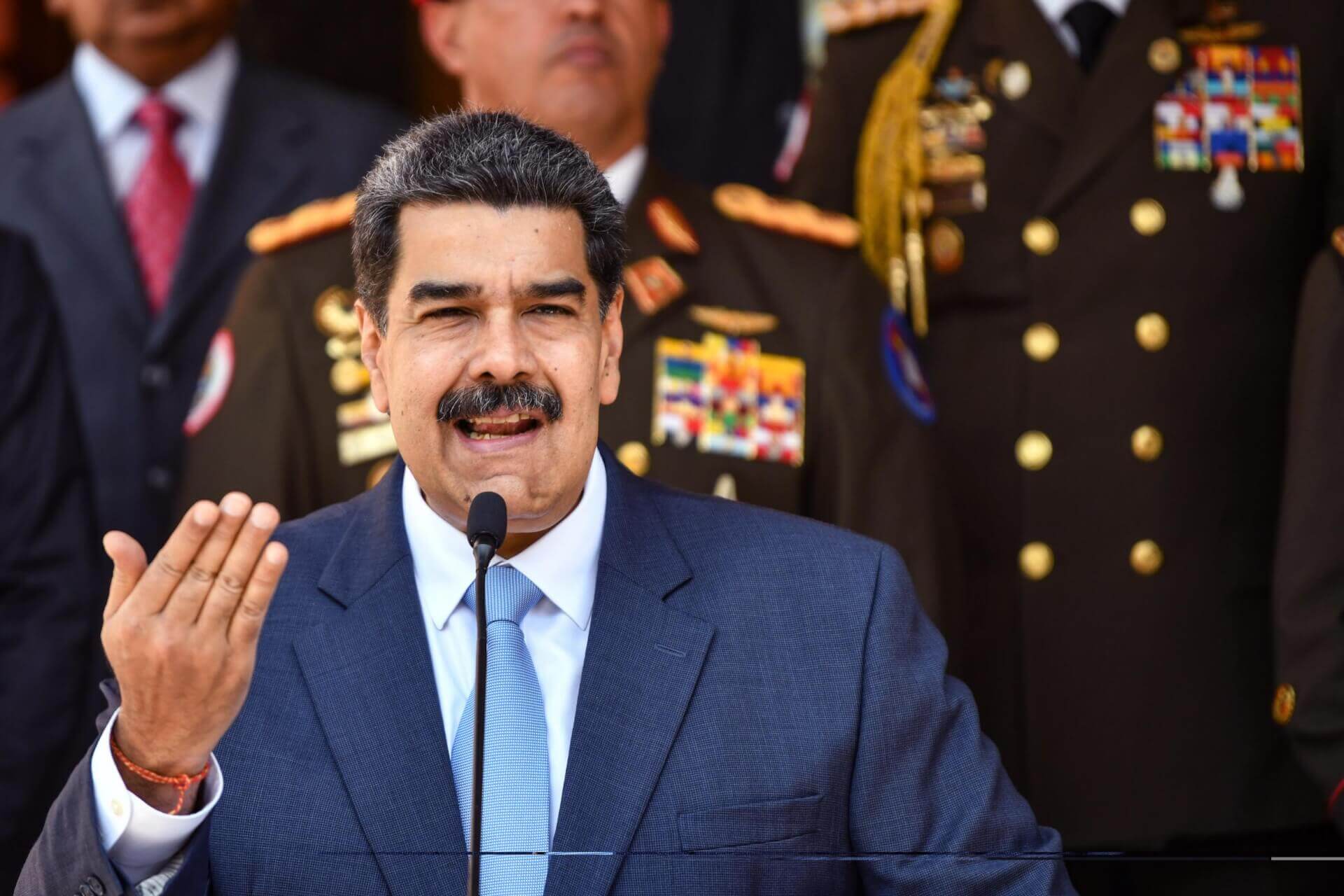In a televised state address, Venezuelan President Nicolás Maduro ordered the European Union (EU) envoy to the country to leave immediately, just hours after the Union slapped additional sanctions on eleven loyalists to the Maduro regime. As of Monday, 36 Venezuelan officials have now been sanctioned by the EU, wherein they are subjected to a travel ban and their assets are freezed. The EU claims that targeted sanctions, as opposed to overarching sanctions on the entire country, can pave the way for a transitional government without affecting the general population.
Maduro gave Isabel Brilhante Pedrosa, the EU Ambassador to Venezuela, 72 hours to leave the country. The EU, along with 60 other countries, including the US, recognize opposition leader and leader of the National Assembly Juan Guaidó as the legitimate and interim leader of Venezuela. Accordingly, Maduro said, “If they can’t respect Venezuela, then they should leave it,” adding, “They recognize a puppet as president.” The embattled leader asked, “Who are they to try to impose themselves with threats?” He indicated his dissatisfaction with EU sanctions by saying “Enough, enough. […] We demand respect from the European Union.”
Earlier this month, Venezuela’s Supreme Court unilaterally swore in a new commission to the country’s National Electoral Council ahead of the parliamentary elections later this year. Currently, the opposition holds a majority of seats in the congress, which is the only branch of government that is not under President Nicolás Maduro’s control.
A few days later, Supreme Court also ordered the takeover of two opposition parties, the Justice First party and the Democratic Action party, as part of what it described as a “necessary restructuring process”.
The EU’s latest sanctions are in response to these subversions of democracy in Venezuela. However, Maduro has responded by saying, “Prepare yourselves, colonialist, supremacist and racist gentlemen, because in Venezuela there are going to be free and transparent parliamentary elections with the participation of thousands of candidates.”
“Every day, the American empire and the remnants of the former European empire hit us, but here we are fresh and victorious. They have not been able to and will not be able to deal with us!” Maduro said.
Maduro continues to be supported by China, Russia, Iran, and Cuba. Additionally, a few weeks ago, Mexican President Andrés Manuel López Obrador (AMLO) said that he would sell gasoline to Venezuela “if it were a humanitarian necessity”. He said, “We are free, Mexico is an independent country, sovereign, we make our own decisions and we don’t get involved in the policies of other countries.” AMLO added, “It is self-determination of the people and help in humanitarian ways. No one has the right to oppress others, no hegemony can squash another country.” However, just a few days later, the United States Treasury Department’s Office of Foreign Assets Control (OFAC) blacklisted two Mexican companies and multiple Mexican nationals for reselling Venezuelan crude. In response, Mexico’s Financial Crime Department froze the bank accounts of the companies and the people named in the OFAC report, bowing under American pressure. In fact, even some companies in China and Russia have put an end to oil trade with Venezuela due to the threat of US sanctions.
Iran, however, remains unperturbed. Iran, for instance, sent five tankers of gasoline to Venezuela in May. In fact, Iran’s Foreign Ministry spokesman, Seyed Abbas Mousavi, said that cooperation between the two countries will continue or even increase, even in the face of sanctions.
Mousavi said, “The desperate measures of the U.S. against Iranian nationals, such as the one announced by the U.S. Secretary of State, Mike Pompeo, also known as the Secretary of Hate, is a sign of the failure of the so-called ‘maximum pressure’.”
He added, “Despite the pressure from the US, Iran and Venezuela remain firm in their fight against the illegal US sanctions.”
The latest EU sanctions are likely to cause even greater strife in Venezuela, which is combatting a pandemic with severely limited resources, alongside malnutrition, poverty, and crime.
Maduro Orders EU Envoy to Leave Venezuela Following Latest Sanctions
The EU has now sanctioned 36 Venezuelan officials.
June 30, 2020

IMAGE SOURCE: CAROLINA CABRAL / GETTY IMAGESVenezuelan President Nicolás Maduro
